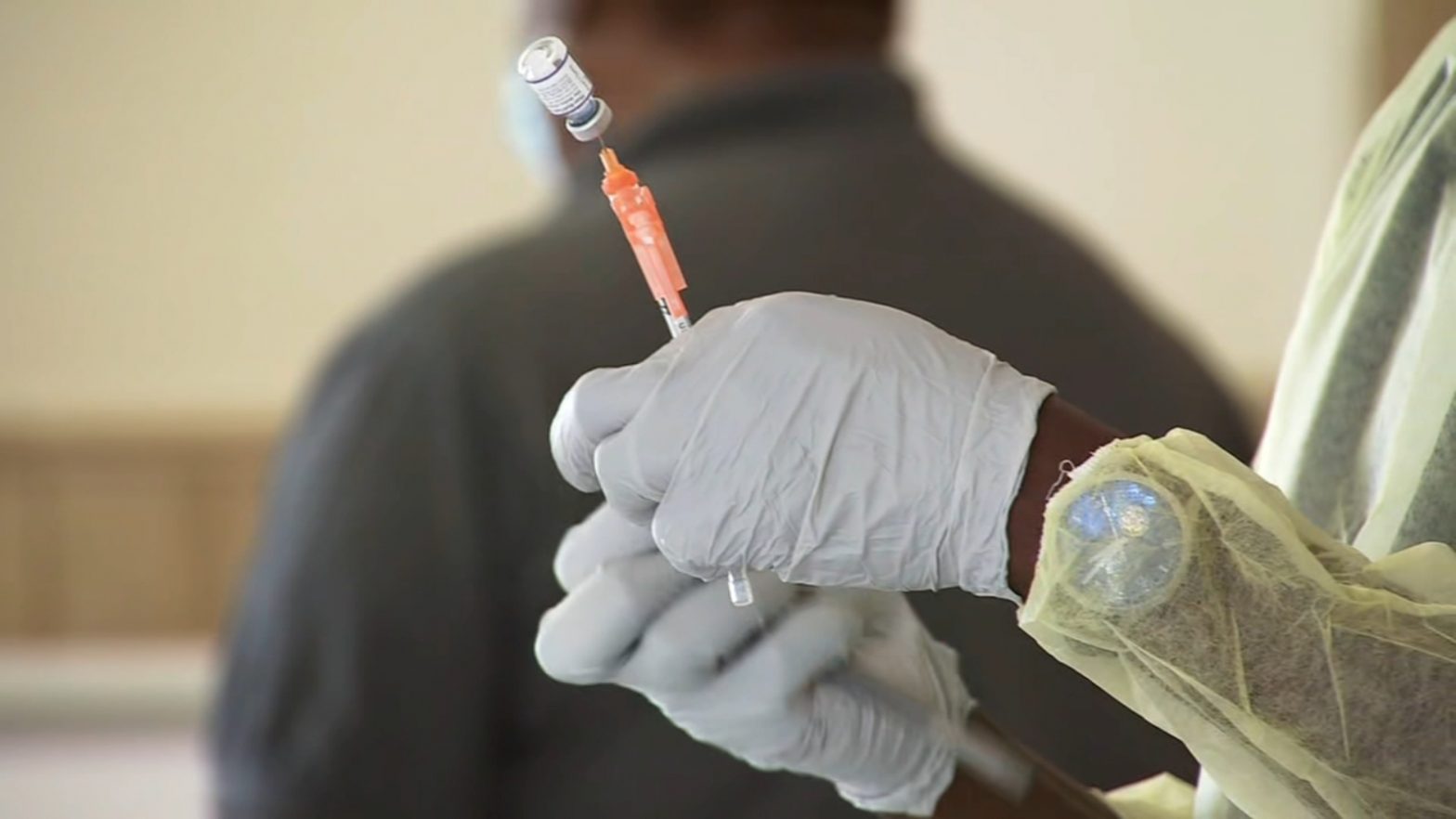ABC7 News reporter Luz Pena from San Francisco spoke to multiple Bay Area experts, who say a second booster won’t be necessary for everyone.
As omicron cases spike throughout California, The Bay Area has the highest population with boosters in the state with 55 percent. But according to experts that protection won’t last long.
“Ten weeks. There’s a decline from 70 percent protection down to 45 percent protection of symptomatic illness,” said Dr. Warner Greene.
RELATED: Moderna: Initial COVID-19 vaccine booster data shows good results on omicron
Based on this new data from the UK, Moderna is pushing for a second booster.
According to Moderna’s CEO, the efficacy of boosters will likely decline over time. The company is projecting the need for a second booster by the fall.
Dr. Greene, virologist and senior investigator at the Gladstone Institutes doesn’t agree with Moderna’s push for a second booster.
“We shouldn’t be chasing our tail trying to prevent them from becoming infected, with the exception of people who are at high risk, people who are immune compromised,” said Dr. Greene.
VIDEO: Doctors suggest we should have waited longer between doses of Pfizer, Moderna vaccines
For the rest of the population he recommends, two vaccine doses, one booster and Pfizer’s Paxlovid pill when infected.
“For example, you develop symptoms and you rapidly get tested, ideally within the first three days, and you go on Paxlovid. That will keep you also out of the hospital,” said Dr. Greene.
UCSF’s Infectious Disease doctor Monica Gandhi agrees with Dr. Greene.
RELATED: Supreme Court weighs Biden’s vaccine mandate, COVID testing rules affecting more than 80M
“I think it’s hard to have a CEO dictate our policy and companies who stand and make money for it,” said Dr. Gandhi.
Dr. Gandhi is hesitant of the effects a second booster could have right now.
“It trains your immune system wrong. It doesn’t train your immune system to recognize a variant. It trains your immune system to recognize the old ancestral strain that the shots are made of. That concept is the ‘original antigenic sin,’ is what they call it, is what immunologist are expressing concern of,” said Dr. Gandhi.
Both experts believe there will be variant-specific vaccines.
VACCINE TRACKER: Here’s how CA is doing, when you can get a coronavirus vaccine
“But if we boost, let’s boost with a better vaccine. Not the one against the original strain of the virus that emerged. Redesign the vaccine so that it is delta, omicron so that we can deal with the viruses that are in circulation now. So, to use the old vaccine to me, to buy a few weeks of protection, I’m just not all in for sure,” said Dr. Greene.
Dr. Gandhi doesn’t rule out the possibility of more boosters in the future, but not immediately.
RELATED: CDC tries to clarify COVID guidelines on isolation, negative tests after pushback
“Hopefully this will be it and then we’ll boost again in the future kind of based on, as immunity goes down. We may give another shot in five years, or another shot in 10 years. These are the decisions that will be made based on the protection from severe disease, not mild infection,” explained Dr. Gandhi and added, “This isn’t the virus that has two spike proteins like influenza does. It is the type of virus that is around, there is no doubt. But hopefully it’s not going to keep on changing so much.”
Dr. Gandhi believes we need to focus our efforts on a global vaccination plan.
Copyright © 2022 KGO-TV. All Rights Reserved.
